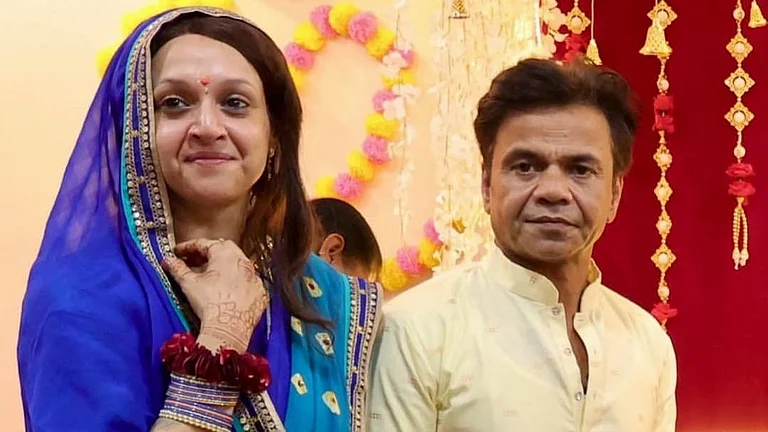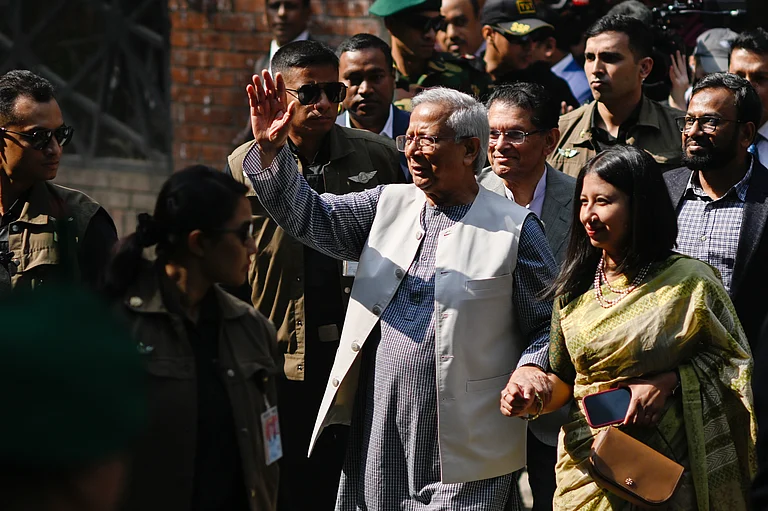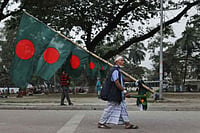Bangladesh, which welcomed with open arms the Rohingya refugees fleeing Myanmar military’s crackdown in 2017, is under pressure due to their rapidly-increasing population and involvement in crime as it struggles to find a solution to the crisis even after five years.
The situation came to the fore during a visit to a Rohingya camp in the Cox's Bazar district of Chittagong division, while interacting with officials associated with the law enforcement agencies.
Criminal activities like theft, murder, dacoity, rape, drug trafficking have increased nearly seven times in the last five years in the Cox's Bazar area, an official told PTI.
Some of the Rohingya refugees are already involved in criminal activities and that refugee camps are becoming a den for radical groups, he said.
The growth rate of the Rohingya population is five per cent against that of one per cent of the local population, the official said.
The Cox's Bazar area has registered a nearly seven-fold increase in crimes in the last five years, he said.
In 2017, seventy-six cases of crime were reported and 159 criminals were arrested, while in 2021, the number of criminal cases increased to 507 with 1,024 arrests.
In the last six months, authorities seized 1,55,65,244 pieces of the narcotic drug 'Yaba', while 14.8 kgs of narcotic 'ice' and gold were seized from Rohingyas, the official said.
He said that drug smuggling from Myanmar is a threat to the entire region, including India as it shares a 4,095-km long border with Bangladesh, which has 1,116 km of riverine area.
The official said that conflict is also increasing between Rohingya refugees and the local population.
He said that there has been a growing sense of local people holding refugees responsible for inflation and the impact on their jobs.
Based on the data published in the local media, the official said that the daily wages have come down by 50 per cent since 2017.
He said that before the arrival of new refugees in Cox's Bazar area of Chittagong district, agricultural wages were 500 to 600 Taka (USD 5 to 6), construction sector wages were 600-700 Taka (USD 6-7), which has now come down to 200-250 Taka (USD 2 to 2.6) per day.
During a conversation with a group of visiting journalists from Delhi, Bangladesh's Information Minister Hasan Mahmud acknowledged the rapid increase in the Rohingya population and concerns about it.
"The rate of increase in the country's local population is one per cent, while the Rohingya population is growing at five per cent," he said.
During the Myanmar crisis five years ago, about 70,000 pregnant Rohingya women reached here and gave birth to children. Since then, about two lakh more children have been born here, Mahmud said.
The minister said that some of the Rohingyas are already involved in criminal activities and that refugee camps are "very suitable" places for radical groups.
He said that refugee camps have become the biggest recruitment sites for such groups.
“Our government is very strict on radical groups, but handling such a large population of Rohingyas is not easy,” Mahmud said.
There are about 11.5 lakh Rohingya refugees in Bangladesh and they are living in refugee camps located in Cox's Bazar, Ukhiya and Taknaf areas.
A major reason for the huge increase in the Rohingya population is also the help given by Bangladesh with international cooperation.
Commodore (retd) Mohammad Nurul Absar, chairman of the Bangladesh-based think-tank Central Foundation for International and Strategic Study (CFISS), said that free ration per family and 1,100 Taka (USD 11.7) cash per person per month is being given.
Apart from this, pregnant women are also getting the facility of nutritious food and free LPG cylinders are being given for cooking food, he said.
Absar said many Rohingya refugees are involved in crimes like drug trafficking, extortion and human trafficking. Apart from this, they are also involved in theft and other crimes.
He said that the conflict of the local population with the Rohingyas is also increasing. While the poor people of the country are fighting hard for two meals a day, Rohingya refugees get free ration, 1,100 Taka per person per month among other facilities.
In the coming days, there may also be an increase in radicalisation, as these people reached this side after fleeing Myanmar and crossing the Naf River. On the other side of the border, they are excited to see their house and their land and will do anything to get it, Absar said.
At the same time, Rohingya refugees in Bangladesh have not given up their hope of returning to the country even after five years.
Jamalida Begum, 33, who is living in a refugee camp in Cox's Bazar's Ukhia, is hopeful that she will be able to go back home.
"Things are definitely challenging, but the hope of return has not diminished yet, I am sure that some solution will definitely be found for this,” she said.
Jamalida said that her husband Abdul Shukur was shot dead by Myanmar soldiers in front of her.
"I was raped. I somehow managed to save my life by crossing the Naf river and reached Bangladesh," she said.
Mohammad Amin, 48, who arrived in Bangladesh, is also eagerly waiting to return home. However, he is disappointed that it will take a long time.
Expressing his helplessness, Amin said, "It (return) is not in our hands, but we will get the success”.
Mohammad Noor said that he would consider himself extremely lucky if he could go back.
“We can stay there only if we are allowed to stay. The situation is still bad, but now if there is a way to return, then I would definitely like to go home,” he added.


























